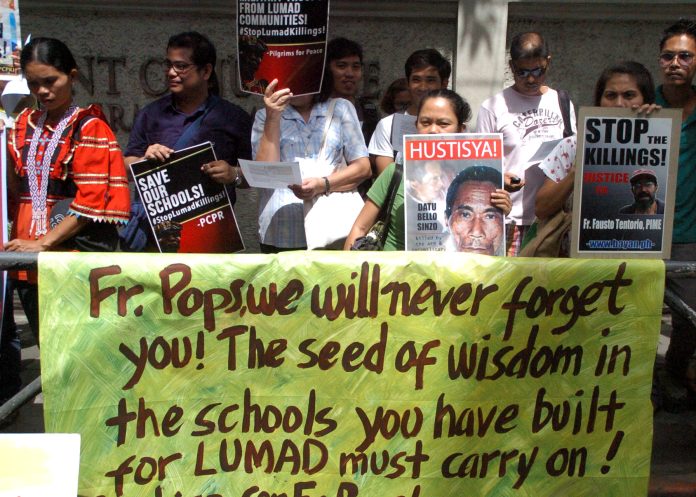Italian missionary priest Peter Geremia of the Pontifical Institute for Foreign Missions (PIME) decried the slow pace of justice in the killing of his colleague, Father Fausto Tentorio, 11 years ago in the southern Philippines.
“It’s another case of justice delayed, justice denied,” said Father Geremia in a report on the Philippine Daily Inquirer this week.
“The last hearing (last year) was on October 13, the next hearing was on January 26 [this year], but the court postponed the hearing because the arrested suspect was not able to hire a lawyer,” added the priest.
“You can see how slow the court is. Are these delaying tactics?” he asked.
In the same report, Father Geremia lamented that the media seemed to have lost interest in the story.
“Unlike before when media people always sought us out on the development of the case, right now, the media seem to have forgotten,” he said.
Father Tentorio, a member of the Pontifical Institute for Foreign Missions who had worked with tribal people since 1978, was shot dead inside his church compound in Arakan town on Oct. 17, 2011.
The Italian priest was a known environmental activist and had spoken out against mining operations in Arakan town and nearby areas.
During his stay in Mindanao, the priest facilitated the operation of 80 daycare centers in tribal communities and was instrumental in the establishment of 10 Ata-Manobo tribal schools in Davao del Norte province.
He also supported the education of at least 3,000 tribal and peasant children.
Witnesses and human rights groups said the Bagani paramilitary group, which is allegedly trained and funded by the Armed Forces of the Philippines, was behind the killing.









